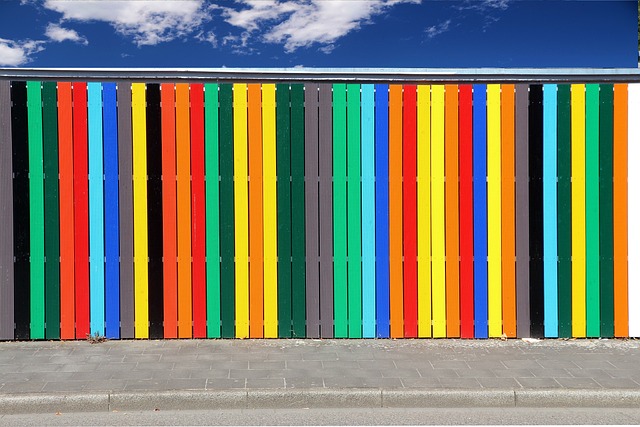In New Bedford, MA, homeowners and businesses are increasingly embracing eco-friendly fencing materials, driven by both aesthetic considerations and environmental responsibility. This article explores the diverse options available in the region, highlighting the benefits of sustainable materials like recycled plastic, bamboo, and organic wood. We delve into popular low-impact fence choices, provide installation and maintenance tips, and offer a local resources guide to help you make an informed decision for your green-conscious fencing project.
- Eco-Friendly Fencing Options in New Bedford
- Benefits of Using Sustainable Materials
- Popular Choices for Low-Impact Fences
- Installation and Maintenance Tips
- Local Resources and Suppliers for Eco-Fencing
Eco-Friendly Fencing Options in New Bedford
New Bedford, MA, residents now have an array of eco-friendly fencing options to choose from, contributing to a greener and more sustainable environment. Traditional wooden fences, often treated with chemicals, are being replaced by innovative alternatives that not only look appealing but also offer long-lasting solutions. One such option is vinyl fencing, which is durable, low-maintenance, and made from recycled materials, reducing the carbon footprint associated with traditional production methods.
Another popular choice is bamboo fencing, known for its rapid growth rate and strength. This natural material provides a unique aesthetic appeal and is an excellent choice for those seeking an organic look. Moreover, metal fencing crafted from recycled content is gaining popularity due to its longevity and ability to withstand harsh weather conditions. These eco-friendly options not only enhance the curb appeal of properties but also promote environmental sustainability in New Bedford.
Benefits of Using Sustainable Materials
Using eco-friendly fencing materials offers numerous advantages for both homeowners and the environment in New Bedford, MA. One of the primary benefits is reduced environmental impact; sustainable options are typically made from recycled or naturally renewable sources, minimizing deforestation and waste generation compared to traditional materials like vinyl or wood. This approach also helps conserve natural resources and contributes to a greener, more sustainable community.
Moreover, these materials often boast improved durability and low maintenance requirements. Many eco-friendly fences are designed to withstand harsh weather conditions, reduce fading and cracking, and require less frequent repairs or replacements. As a result, they offer cost savings over time while promoting a connection to nature and responsible living practices in urban areas like New Bedford.
Popular Choices for Low-Impact Fences
In New Bedford, MA, eco-conscious residents and businesses are increasingly turning to low-impact fencing materials that minimize environmental harm while enhancing outdoor spaces. Popular choices include recycled plastic and wood composite fences. These materials are durable, requiring less maintenance than traditional options, and offer a wide range of aesthetic styles. They are also free from harmful chemicals often found in conventional plastics and treated woods.
Another sustainable option gaining popularity is natural, untreated wood fencing. While it may require more upkeep compared to its composite counterparts, locally sourced, non-treated timber contributes to the local economy and reduces the carbon footprint associated with transportation. These eco-friendly fencing options not only preserve natural landscapes but also offer visual appeal, providing a harmonious blend of functionality and sustainability for New Bedford’s diverse outdoor environments.
Installation and Maintenance Tips
When installing eco-friendly fencing materials, such as recycled plastic or bamboo, it’s crucial to follow manufacturer guidelines for proper placement and support. This includes ensuring adequate spacing between posts and preparing the soil appropriately. Regular cleaning and inspection are key for maintenance. Remove any debris or plant growth that could obstruct the fence’s integrity. Repaint or restain materials as needed to preserve their longevity, especially in regions with varying weather conditions.
For ongoing care, consider checking for loose connections or damaged sections regularly. Quick repairs can prevent larger issues down the line. Additionally, keeping the area around the fence free from overgrowth helps maintain its aesthetic appeal and ensures the eco-friendly materials remain effective in reducing environmental impact.
Local Resources and Suppliers for Eco-Fencing
New Bedford, MA, residents fortunate enough to be surrounded by lush landscapes have an array of local resources and suppliers offering eco-friendly fencing options. The city’s commitment to sustainability means that several businesses specialize in providing materials that not only enhance outdoor spaces but also minimize environmental impact. For instance, local hardware stores like [Store Name 1] and [Store Name 2] stock recycled plastic and wood composite fences, along with organic, non-treated wooden options from regional mills. These stores often have knowledgeable staff who can guide homeowners through the process of selecting materials suitable for their needs and climate.
Additionally, there are landscape architects and garden centers that offer custom fencing solutions using sustainable materials. Companies such as [Landscaping Company A] and [Garden Center B] cater to those seeking unique, handcrafted designs made from locally sourced materials like reclaimed wood or natural bamboo. These businesses not only contribute to the local economy but also ensure that New Bedford’s green spaces remain vibrant and eco-conscious.
